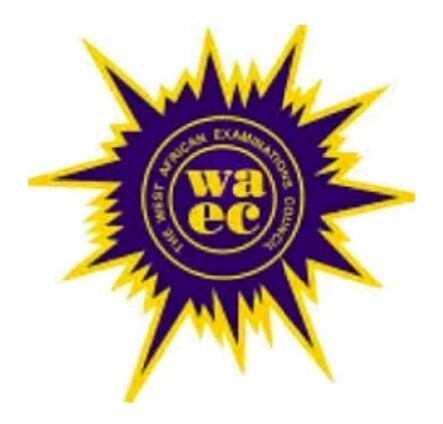Studying Integrated Science is crucial for effective exam preparation, particularly for students planning to sit for the West African Examination Council (WAEC) Integrated Science exam.
The syllabus provided by WAEC serves as a roadmap, outlining the aims, objectives, and format of the examination.
This blog post aims to simplify the WAEC Integrated Science syllabus, providing a concise overview of the topics and recommended textbooks.
What is Integrated Science?
Integrated Science is a subject that combines various scientific disciplines to provide students with a holistic understanding of the natural world.
The primary goal is to equip individuals with scientific knowledge and enhance their scientific literacy, enabling them to function effectively in our modern technological era.
Additionally, studying Integrated Science fosters the development of positive attitudes and values towards science.
Aims and Objectives
The WAEC Integrated Science syllabus aims to achieve the following objectives:
- Problem Solving: Develop the skills to solve basic problems within their immediate environment through analysis and experimentation.
- Diversity of Matter: Understand the diversity of living and non-living things, their interconnectedness, and patterns of change.
- Environmental Management: Foster sustainable habits for managing the natural environment for the betterment of humankind and society.
- Technology Literacy: Use appliances and gadgets effectively, with a clear understanding of their basic operations and underlying principles.
- Energy: Explore, conserve, and optimize the use of energy as a vital resource for the living world.
- Scientific Inquiry: Promote a scientific way of life through pragmatic observation and investigation of natural phenomena.
- Interdisciplinary Solutions: Encourage the search for solutions to life’s problems by recognizing the interaction of science, technology, and other disciplines.
Requirements
To excel in the Integrated Science examination, it is presumed that candidates have met the following requirements:
- Practical Experience: Engage in activities related to rearing animals or visits to farms, agricultural institutions, research facilities, or manufacturing sites to observe scientific work and its applications.
- Practical Notebooks: Maintain practical notebooks documenting laboratory and field activities.
Scheme of Examination
The WAEC Integrated Science examination consists of three papers: Papers 1, 2, and 3. Here is a breakdown of each paper:
- Paper 1: This paper consists of fifty multiple-choice objective questions to be answered within one hour, carrying a total of 50 marks.
- Paper 2: Candidates will be required to answer four essay-type questions out of six within one hour and thirty minutes. Each question carries 20 marks.
- Paper 3: This paper focuses on practical work and consists of four questions to be answered within two hours, carrying a total of 60 marks.
List of WAEC Integrated Science Syllabus
The following topics are covered in the WAEC Integrated Science syllabus:
-
Diversity of Matter:
- Introduction to Integrated Science
- Scientific Method and Safety Precautions
- Measurement and Measuring Instruments
- Diversity of Living and Non-living Things
- Matter: Elements, Compounds, Mixtures
- Cells and Rocks
- Acids, Bases, and Salts
- Soil Conservation
- Water and Metals/Non-metals
- Organic and Inorganic Compounds
-
Cycles:
- Air Movement and Nitrogen Cycle
- Hydrological Cycle and Water Conservation
- Life Cycles of Pests and Parasites
- Crop Production and Animal Production
-
Systems:
- Skeletal System and Reproduction in Plants
- Respiratory System and Food/Nutrition
- Circulatory System and Nervous System
- Endocrine System and Reproductive System
- Growth and Development
-
Energy:
- Forms of Energy and Energy Transformation
- Solar Energy and Photosynthesis
- Electronics and Electrical Energy
- Sound Energy and Light Energy
- Heat Energy and Nuclear Energy
-
Interactions of Matter
- Ecosystems and Atmosphere
- Infection and Diseases
- Magnetism and Force/Motion/Pressure
- Safety in the Community
- Variation and Inheritance
- Work and Machines
- Biotechnology
FAQs
What topics are covered in the WAEC Integrated Science syllabus for 2024/2025?
The WAEC Integrated Science syllabus for 2024/2025 covers a range of topics including:
-
- The scientific method and process
- Environmental science and ecosystem balance
- Matter and its properties
- Forces and motion
- Energy types, sources, and conservation
- Human anatomy, nutrition, and reproduction
- Simple machines and their applications
- Health, sanitation, and diseases These topics aim to provide students with a broad understanding of scientific concepts and their real-world applications.
How can students access the official WAEC Integrated Science syllabus for 2024/2025?
Students can access the official WAEC Integrated Science syllabus for 2024/2025 by visiting the WAEC website at www.waeconline.org.ng or by purchasing the syllabus booklet from authorized WAEC centers. Additionally, some educational platforms and schools may offer digital copies or summaries of the syllabus to help students prepare.
What are the recommended textbooks for preparing for the WAEC Integrated Science exam?
Recommended textbooks for preparing for the WAEC Integrated Science exam include:
-
- “Comprehensive Integrated Science for Senior Secondary Schools” by Dr. O. O. Iwena
- “Modern Integrated Science for West Africa” by A. F. Agwu
- “Integrated Science: A Practical Approach” by E. O. Akinpelu These textbooks cover the key topics outlined in the WAEC syllabus and provide practice questions, diagrams, and explanations that can aid students’ understanding and exam preparation.
Conclusion
Preparing for the WAEC Integrated Science examination requires a thorough understanding of the syllabus.
By studying the prescribed topics and referring to recommended textbooks, students can confidently navigate the exam.
Integrated Science serves as a foundation for scientific literacy and promotes critical thinking, problem-solving, and environmental awareness.
With diligent preparation using the syllabus as a guide, students can enhance their chances of success in the WAEC Integrated Science examination.






